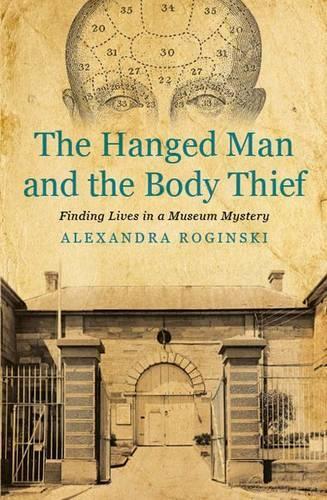
The Hanged Man and the Body Thief: Finding Lives in a Museum Mystery
(Paperback)
Publishing Details
The Hanged Man and the Body Thief: Finding Lives in a Museum Mystery
By (Author) Alexandra Roginski
Monash University Publishing
Monash University Publishing
29th June 2015
Australia
Classifications
Professional and Scholarly
Non Fiction
Indigenous peoples / Indigeneity
994.4
Physical Properties
Paperback
146
Width 135mm, Height 210mm, Spine 10mm
367g
Description
1860. An Aboriginal labourer named Jim Crow is led to the scaffold of the Maitland Gaol in colonial New South Wales. Among the onlookers is the Scotsman AS Hamilton, who will take bizarre steps in the aftermath of the execution to exhume this young man's skull. Hamilton is a lecturer who travels the Australian colonies teaching phrenology, a popular science that claims character and intellect can be judged from a person's head. For Hamilton, Jim Crow is an important prize. A century and a half later, researchers at Museum Victoria want to repatriate Jim Crow and other Aboriginal people from Hamilton's collection of human remains to their respective communities. But their only clues are damaged labels and skulls. With each new find, more questions emerge. Who was Jim Crow Why was he executed And how did he end up so far south in Melbourne In a compelling and original work of history, Alexandra Roginski leads the reader through her extensive research aimed at finding the person within the museum piece. Reconstructing the narrative of a life and a theft, she crafts a case study that elegantly navigates between legal and Aboriginal history, heritage studies and biography. Alexandra Roginski explains the history behind the pseudo-science of phrenology, popular in the nineteenth century in this video clip.
Author Bio
Alexandra Roginski lives in Canberra, where she is a doctoral candidate researching the history of popular phrenology at the Australian National University. Originally from Melbourne, she has written for The Age, the Big Issue, and specialist publications in education, research and development. Her interest in the history of science developed during a period when she was working in medical communications. In 2013, Alexandra was awarded an 1854 Student Scholarship from Museum Victoria, where she has also worked as a research assistant in Indigenous repatriation. This is her first book.
